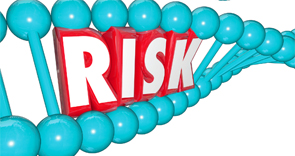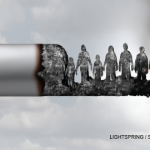
Image Credit: iQoncept/shutterstock.com
SAN FRANCISCO—Research is revealing more clues about the environmental factors that likely play a role in triggering rheumatoid arthritis (RA) in patients who are susceptible—or that may even protect them from autoimmunity.
Large-scale, lengthy population studies conducted at institutions worldwide provide in-depth data from which to identify potential triggers and protective factors for RA, from tobacco smoke to oral contraceptives.
By lifting the curtain on how and why these factors act on the immune system in certain individuals, rheumatologists may one day be able to identify who is most at risk for such diseases as RA, suggest interventions to interrupt disease onset or develop better, more targeted therapies that delay or disrupt bone and joint damage years before it begins, panelists said in November 2015 at the 2015 ACR/ARHP Annual Meeting. In addition to environmental and infectious triggers of autoimmunity, other factors may offer some protection from autoimmunity, offering rheumatologists more tools to fight rheumatic diseases before they can begin to do harm to tissue.
In diseases such as RA, persistent inflammation is the result of dysregulated on and off switches, said Stephen Young, PhD, senior lecturer in rheumatology at the University of Birmingham in the United Kingdom and one of the moderators of the conference. It’s not just a rheumatologic problem: Research published in the American Journal of Psychiatry in 2015 revealed that patients with schizophrenia had signs of neuroinflammation on positron emission tomography (PET) scans, he said.1
“Inflammation is everywhere, and acute inflammation is part of our normal immune response,” said Dr. Young. Out-of-control inflammation may occur when certain alleles make a patient susceptible, then risk factors like smoking, dietary habits or reproductive hormones set it in motion.
Genetics Set the Stage
Genetic factors account for about 50% of the susceptibility to develop RA according to the latest estimates, said Deborah Symmons, MD, professor of rheumatology and musculoskeletal epidemiology at the University of Manchester in the U.K. Over just the past eight years, more than 108 RA risk loci have been identified, she said. But no combination of genetic factors is sufficient to develop RA, so researchers think environmental triggers are the key to moving a person from the potential to have autoimmunity to actually having it.
“Obviously, genes are present from birth. So a person’s genetic risk of RA, which will vary between individuals, is constant throughout their lifetime,” said Dr. Symmons in a follow-up interview after the conference. “It is true that the more susceptibility genes someone has, then the earlier in life they are likely to develop RA. But nevertheless, at least one environmental trigger is required in everyone to set the process going. We know this because there is a relatively low concordance for RA in identical twins who share their genetic susceptibility.”


